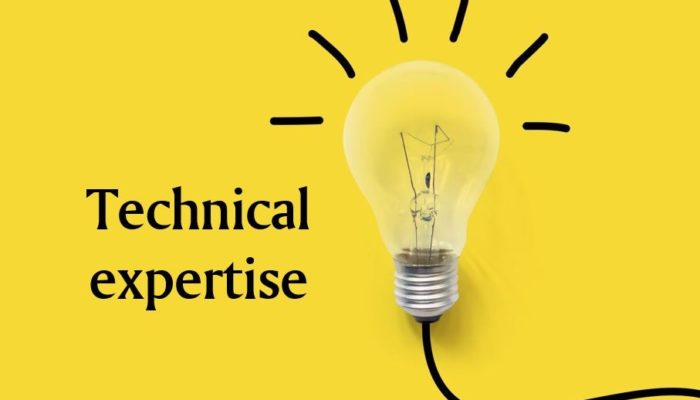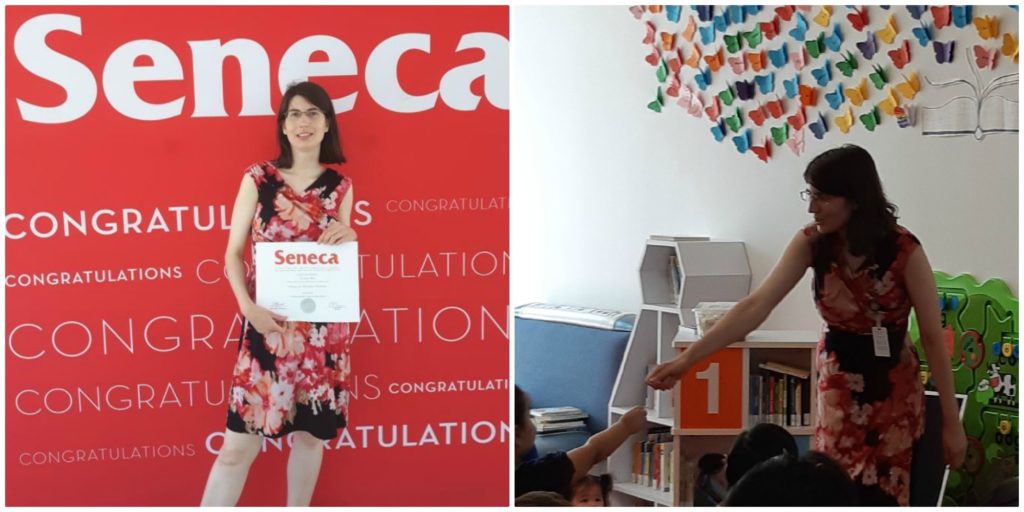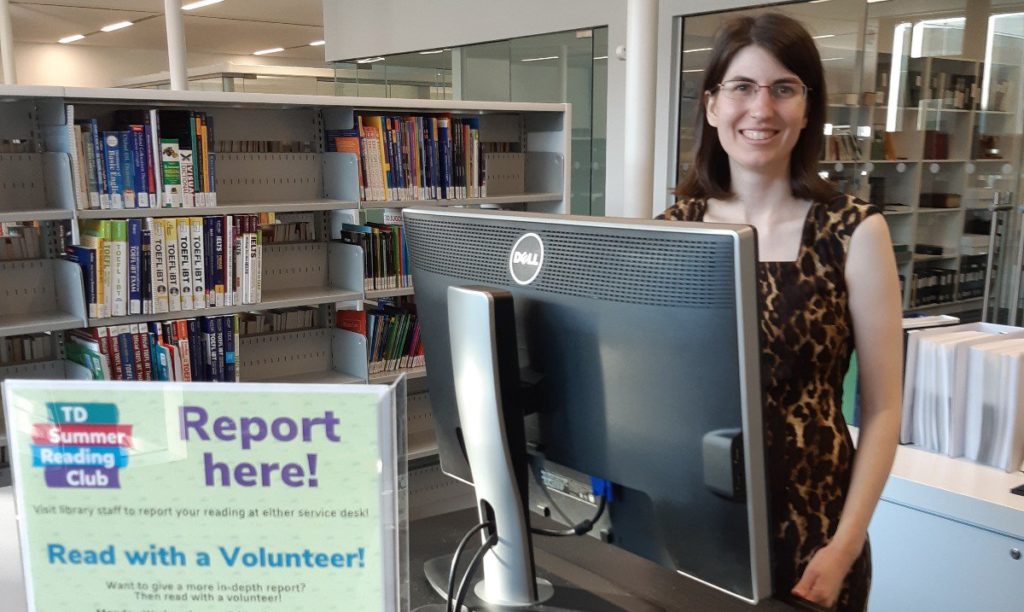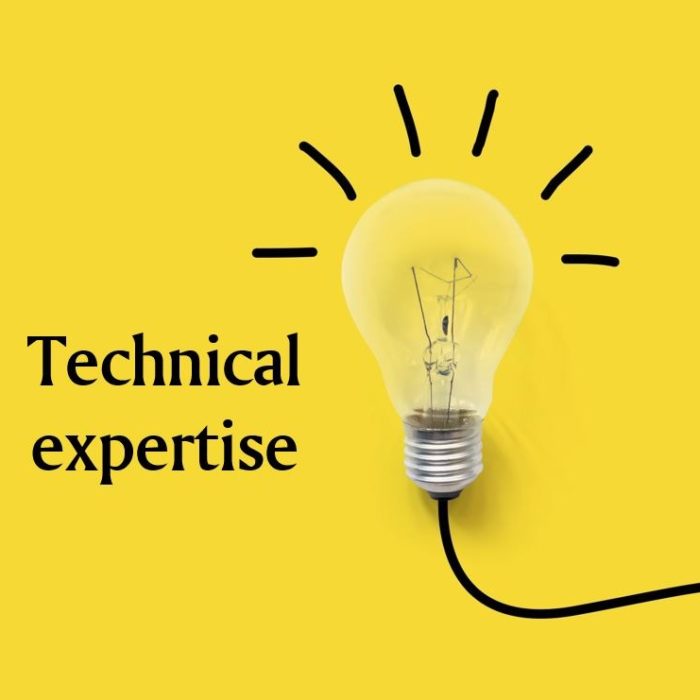In the time of the coronavirus, library workers are having to learn new technologies. A good example of this need to adapt is storytime. I often lead storytimes in my work as a library technician at the Milton Public Library (MPL) and I’ve found by learning to “slide” (i.e., use slides) as part of my storytimes. I’ve not only improved my interactions with children and parents, I’ve also become more comfortable with adapting to new ways of doing my work.

The joys of job hunting
Brianna was a presenter in Round III of our June 2020 online panel discussion on work credentials: Librarians need an MLIS: True or false? Brianna’s answer to this question was, “No”. Instead of choosing to pursue a graduate degree in order to work in libraries, she opted to do a library technician diploma. And she has no regrets.
She now has a fulfilling job with the Milton Public Library and in this limited series, she shares both her journey to finding her position with the library as well as some of the work that she does as a library technician.
My journey to a library technician position with Milton Public Library (MPL) began in late February of 2019. I was finishing my program at Seneca College and my professors encouraged everyone in my class to begin our search for positions prior to our graduation. I followed their advice and began applying for jobs while still in my placement position with the Ontario Legislative Assembly. Starting so early helped me feel relaxed throughout the process, and gave me the time to do the necessary research, refine and alter my approach, face rejections, and never feel like I was running out of time or had to compromise on what I wanted in a workplace. I needed time and help to learn how to prepare myself for this process. Second, while sometimes the job hunt can be “short and sweet”, often we have to be patient and wait for what author Richard Bolles, author of What Colour is Your Parachute, calls “the right yes”.
In-school prep
I feel blessed that my library and information technician program at Seneca College included a course on the job seeking process. We had a chance to review a number of key components of the job preparation process as well as learn about some new tools. In this class we:
- Practiced writing resumes and cover letters.
- Explored employment resources such as LinkedIn.
- Learned how to ace an interview.
I honestly believe a course like this should be taught in high school because we learned the fundamentals of how to approach the job search and present ourselves to prospective employers. I think that these are skills that can help anyone consistently land a job they desire.
In addition, I took advantage of the free workshops offered through the college that provided more advice on interview prep and job seeking. These workshops are open to anyone, including non-Seneca students, and are held at any of the college’s work centers across the Greater Toronto Area (GTA).

Valuable connections
At the same time that I was taking this job hunting training, I also made an effort to cultivate good connections. As so many of us have learned, it’s not just what we know but who we know that can help us find a good job. And for me, this meant people I met while I was at school as well as those with whom I worked.
- I definitely valued my relationships with my college teachers. I tried to speak with my professors regularly during their office hours; not just to learn more but also in hopes of developing a deeper connection with them. I wanted them to really get to know me, to be able to speak about not just my classroom work ethic but also my personality and approach to learning. In return, I found that they were very supportive and willing to make recommendations and share their insights into the library sector in Ontario.
- I tried to get to know the individuals working at my placements. I would ask them about where they went to school, their future dreams, and how they got to where they are now. I learned a lot about where I want to go, and the approaches I want to take, from listening to the journeys of others.
- The OLA Super Conference was a wonderful opportunity to meet people. For example, I spoke to folks while standing in line for book signings. One such interaction led to a wonderful conversation with someone working for the Ottawa District School Board about the opportunities in that area, and another about the opportunities with Barrie Public Library.
- I also tried to talk with librarians working in my community. While scouting a local library one day, one of the librarians working there recommended the LinkedIn Learning courses to make my profile look more appealing, and informed me that I could access these courses for free through my library card.
 Such connections are invaluable and I’ve learned some good “rules of thumb”.
Such connections are invaluable and I’ve learned some good “rules of thumb”.
- One: I’ve found that people love to talk about their lives and dish out advice. As job seekers, I think we should never be afraid to ask people about their own journeys or opportunities they’ve heard of.
- Two: It’s a good idea to seek out opportunities where we can make additional connections and get our names out into the field. As an OLA member, many of these opportunities are readily available. For example, we can volunteer for the OLA Super Conference or the Forest of Reading program, or contribute an article for Open Shelf.
- Three: We need to spend time talking to the staff at our local libraries. These folks can steer us towards job hunting tools and share their experiences of working in Ontario libraries.
- And Four: As students, we need to remember to ask for references from the people with whom we’ve worked or volunteered. I dropped the ball and forgot to ask my first placement for a reference before I left. Fortunately, I could go back after the fact but wish I had asked if they’d be willing to vouch for me earlier, when my on-the-job experience with them was still fresh in their minds.
Following these rules of thumb can help us connect with people who can support our job hunt.
A switch in strategy
Initially, I applied for library assistant, associate and technician positions.
Unfortunately, this approach led to multiple failed interviews over a two-month period. Although I had the post-secondary training to do the job, I think that I lacked the experience I needed to really understand what interviewers were looking for or how to demonstrate my skillset and potential.
So, I decided to change my strategy and apply for jobs that did not necessarily require my qualifications. Specifically, I chose to apply for a job as the TD Summer Reading Club coordinator. The TD Summer Reading Club is a national, bilingual summer reading program and libraries across the province were recruiting candidates to work in the program.
I decided to make this shift because, although this job was only a 4-month contract position, I would gain valuable library experience and be one step closer to my ultimate goal. This job-hunting tactic is in fact common across sectors. I have known lots of people who, while looking for work in their desired field, have taken part-time positions in related work to get their foot in the door. I reasoned that, although I might have been overqualified, my credentials could actually give me a greater chance of being interviewed and selected.
This gamble paid off. I was offered a job at the Whitchurch-Stoufville Public Library over the summer. The knowledge I gained by running this TDSRC was a large contributor as to why I was hired with MPL several months later. The database I helped design to register students and record reading times showed my current manager that I had a certain level of technological prowess and a willingness to learn and use technology I was previously unfamiliar with. My experience running various programs over the summer allowed me to better understand the importance and fundamentals of using them to further highlight the collection, and tying the lessons into the current events and values of the community.

A wider job hunting radius
In the last month of my contract with Whitchurch-Stoufville Public Library, I began applying for new positions at other locations. My contract with Whitchurch-Stoufville ended before I had found another job, and, after another two months of looking for work within a 45-minute drive of my home, I decided it was time to start looking for a job that might require me to move to a new community. I was motivated (and prepared) to make this move partly because I did not want to go back to the type of work I had done before going to school (e.g., working in real estate and retail) and partly because I was ready to live on my own. So, moving seemed inevitable to me . . . and moving to a new town was always a possibility.
I applied first to libraries located just over an hour-and-a-half drive from where I was living. I thought this distance would be a realistic commute for the first three months in a different workplace, i.e., I could take the time I needed to settle into a new job before I actually moved to the community. I also had to consider the community itself when applying for work. I took the time to look around new places a bit when I went for interviews to find out if I could see myself living in a community for a reasonable length of time.
My job hunting journey took time and was sometimes hard.
In fact, I changed my interview prep a bit by adding in questions for interviewers such as, “what can you tell me about your town?”, “what do you like about it?”, and “what’s your favourite spot?”, and prospective employers seemed happy to oblige. I remember in my interview with the Gravenhurst Public Library, the interviewers recommended that I check out the Muskoka Wharf before I left and they even gave me a map of the town from the stack they keep at the front desk.
The right “yes” at last
Finally, after months of keeping the faith and being flexible, I was offered an interview for a Customer Service Associate position at the Milton Public Library. During the interview, I felt very comfortable with the manager and got the feeling that I could work well under her. Just as important, I was also drawn to the location. Milton is a growing city that is not too far from Toronto and has lots of recreational activities. I also liked the “look and feel” of the town and it’s located closer to some family members than other towns I had considered
My job hunting journey took eight-and-a-half months from the start of my search to the start of my career with Milton Public Library. I did not always find the process easy and I even had times where I caved and applied to non-library jobs in fear that I might not find work soon enough. And yet, I’ve learned that during any job search, it is important not to let rejection be discouraging. “Keep trying again and again” until the hard work pays off is now my guiding principle.
I know that I have been fortunate because I was able to move to find work, and to have had enough savings to cover 10 weeks of unemployment. And I am grateful that I got to the “right yes” when I did.
Brianna Allen is an early-career library technician currently working as a Service Associate with Milton Public Library. She is a recent graduate of Seneca College’s Library Technician program, and previously worked at Whitchurch-Stouffville Public Library as their TD Summer Reading Club Coordinator throughout the Summer of 2019.
